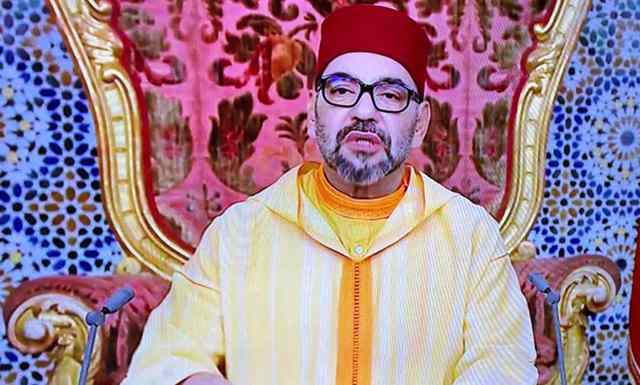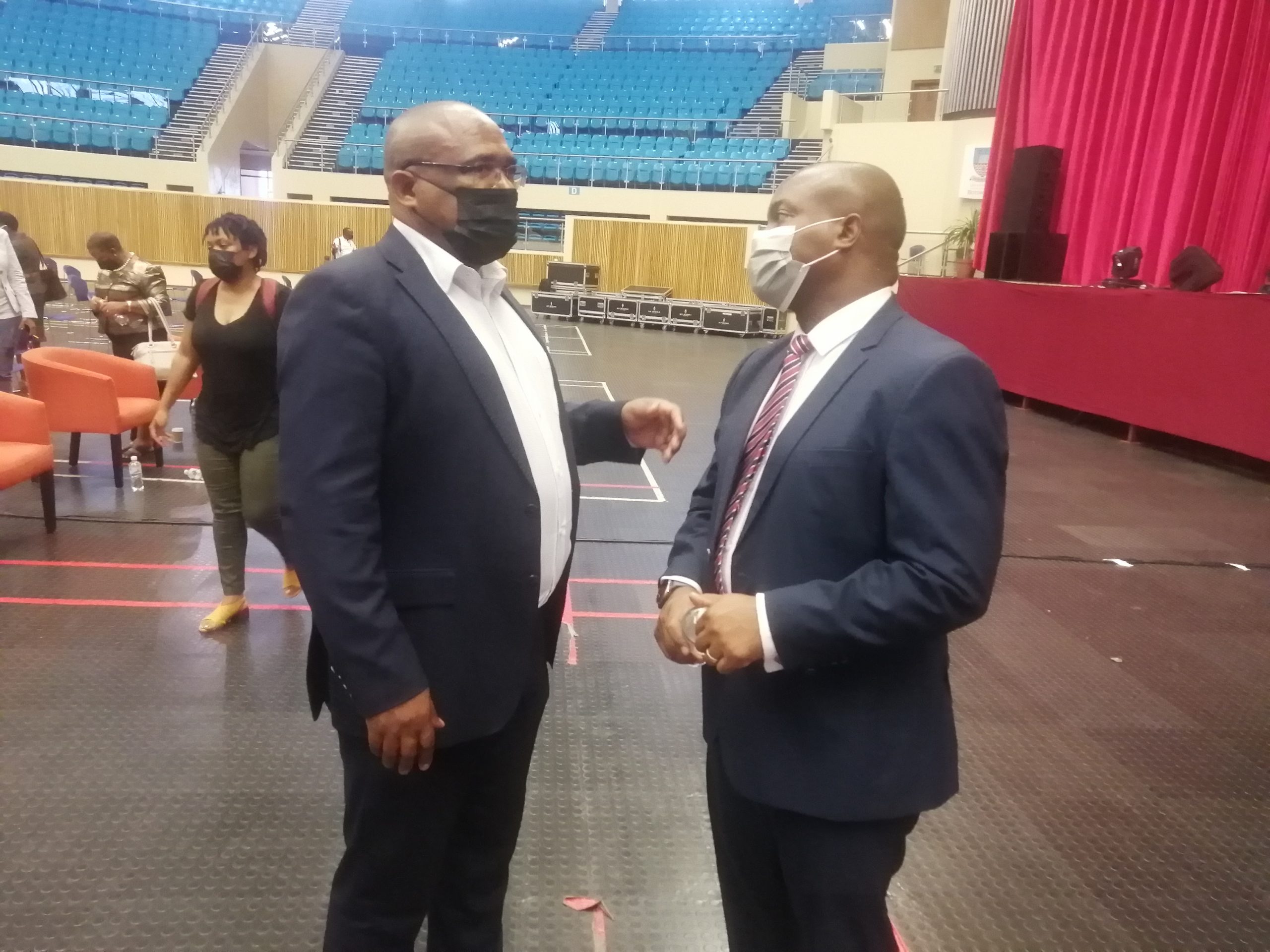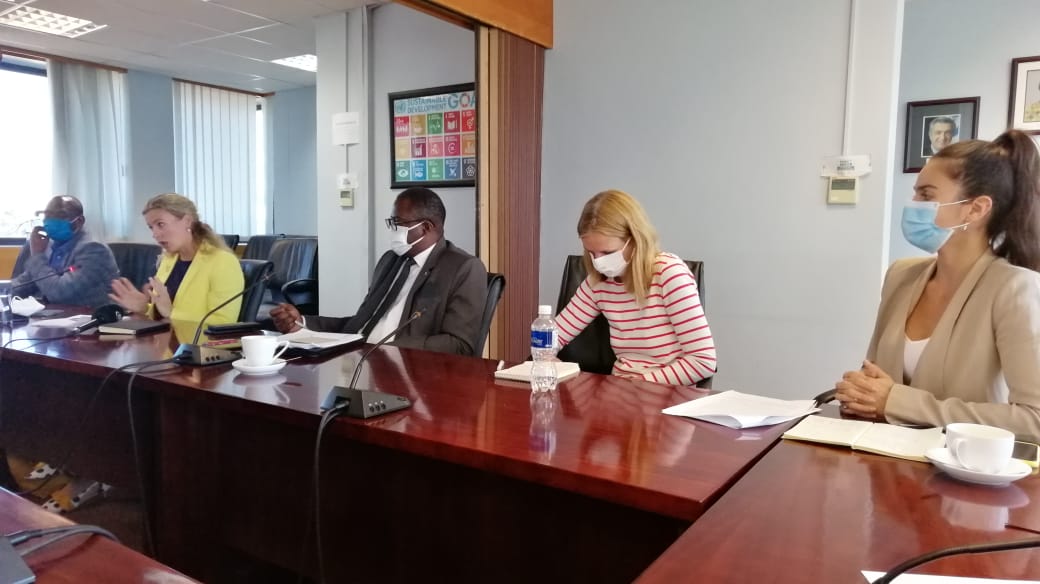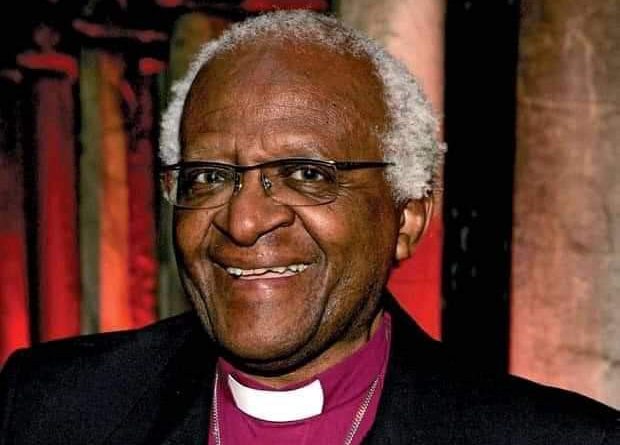
The archbishop, a powerful force for nonviolence in South Africa’s anti-apartheid movement, was awarded the Nobel Peace Prize in 1984.
Dec. 26, 2021Updated 9:03 a.m. ET

Desmond M. Tutu, the cleric who used his pulpit and spirited oratory to help bring down apartheid in South Africa and then became the leading advocate of peaceful reconciliation under Black majority rule, died on Sunday in Cape Town. He was 90.
His death was confirmed by the office of South Africa’s president, Cyril Ramaphosa, who called the archbishop “a leader of principle and pragmatism who gave meaning to the biblical insight that faith without works is dead.”
The cause of death was cancer, the Desmond and Leah Tutu Legacy Foundation said, adding that Archbishop Tutu had died in a care facility. He was first diagnosed with prostate cancer in 1997, and was hospitalized several times in the years since, amid recurring fears that the disease had spread.
As leader of the South African Council of Churches and later as Anglican archbishop of Cape Town, Archbishop Tutu led the church to the forefront of Black South Africans’ decades-long struggle for freedom. His voice was a powerful force for nonviolence in the anti-apartheid movement, earning him a Nobel Peace Prize in 1984.
When that movement triumphed in the early 1990s, he prodded the country toward a new relationship between its white and Black citizens, and, as chairman of the Truth and Reconciliation Commission, he gathered testimony documenting the viciousness of apartheid.
“You are overwhelmed by the extent of evil,” he said. But, he added, it was necessary to open the wound to cleanse it. In return for an honest accounting of past crimes, the committee offered amnesty, establishing what Archbishop Tutu called the principle of restorative — rather than retributive — justice.
His credibility was crucial to the commission’s efforts to get former members of the South African security forces and former guerrilla fighters to cooperate with the inquiry.
Archbishop Tutu preached that the policy of apartheid was as dehumanizing to the oppressors as it was to the oppressed. At home, he stood against looming violence and sought to bridge the chasm between Black and white; abroad, he urged economic sanctions against the South African government to force a change of policy.
But as much as he had inveighed against the apartheid-era leadership, he displayed equal disapproval of leading figures in the dominant African National Congress, which came to power under Nelson Mandela in the first fully democratic elections in 1994.
In 2004, the archbishop accused President Thabo Mbeki, Mr. Mandela’s successor, of pursuing policies that enriched a tiny elite while “many, too many, of our people live in grueling, demeaning, dehumanizing poverty.”
“We are sitting on a powder keg,” he said.
Although he and Mr. Mbeki later reconciled — they were photographed together in 2015 as Mr. Mbeki, by then the former president, visited Archbishop Tutu in a hospital — the archbishop remained unhappy about the state of affairs in his country under its next president, Jacob G. Zuma, who had denied Mr. Mbeki another term despite being embroiled in scandal.
“I think we are at a bad place in South Africa,” Archbishop Tutu told The New York Times Magazine in 2010, “and especially when you contrast it with the Mandela era. Many of the things that we dreamed were possible seem to be getting more and more out of reach. We have the most unequal society in the world.”
Then, in 2011, as critics accused the A.N.C. of corruption and mismanagement, Archbishop Tutu again assailed the government, this time in terms that would have once been unimaginable. “This government, our government, is worse than the apartheid government,” he said, “because at least you were expecting it with the apartheid government.”
He added: “Mr. Zuma, you and your government don’t represent me. You represent your own interests. I am warning you out of love, one day we will start praying for the defeat of the A.N.C. government. You are disgraceful.”

Archbishop Tutu with Nelson Mandela in 1994, weeks before the historic election.Credit…Per-Anders Pettersson/Corbis
His words seemed prophetic when, in 2016, an alliance of religious leaders in South Africa joined other critics in urging Mr. Zuma to quit. In early 2018, Mr. Zuma was ousted after a power struggle with his deputy, Mr. Ramaphosa, who took over the presidency in February of that year.
By then, Archbishop Tutu had largely stopped giving interviews because of failing health and rarely appeared in public. But a few months after Mr. Ramaphosa was sworn in as the new president with the promise of a “new dawn” for the nation, the archbishop welcomed him at his home.
“Know that we pray regularly for you and your colleagues that this must not be a false dawn,” Archbishop Tutu warned Mr. Ramaphosa.
At that time, support for the African National Congress had declined, even though it remained the country’s biggest political party. In elections in 2016, while still under the leadership of Mr. Zuma, the party’s share of the vote slipped to its lowest level since the end of apartheid. Mr. Ramaphosa struggled to reverse that trend, but earned some praise later for his robust handling of the coronavirus crisis.
A Global Celebrity
For much of his life, Archbishop Tutu was a spellbinding preacher, his voice by turns sonorous and high-pitched. He often descended from the pulpit to embrace his parishioners. Occasionally he would break into a pixielike dance in the aisles, punctuating his message with the wit and the chuckling that became his hallmark, inviting his audience into a jubilant bond of fellowship. While assuring his parishioners of God’s love, he exhorted them to follow the path of nonviolence in their struggle.
Politics were inherent in his religious teachings. “We had the land, and they had the Bible,” he said in one of his parables. “Then they said, ‘Let us pray,’ and we closed our eyes. When we opened them again, they had the land and we had the Bible. Maybe we got the better end of the deal.”
His moral leadership, combined with his winning effervescence, made him something of a global celebrity. He was photographed at glittering social functions, appeared in documentaries and chatted with talk-show hosts. Even in late 2015, when his health seemed poor, he met with Prince Harry of Britain, who presented him with an honor on behalf of Queen Elizabeth II.
A compact, restless man — for many years he kept fit by jogging at 4:30 every morning — Archbishop Tutu had piercing eyes that were barely concealed by rimless glasses. When he traveled abroad, he cut a handsome figure in his well-tailored gray suit over a magenta shirt with a white clerical collar.
Apparently convinced of the virtues of modesty, he never seemed to accustom himself to the perquisites of fame and high office. He was unfailingly on time, always expressed appreciation to the bellhops and maids sent to wait on him, and was uncomfortable with limousines and police escorts.
“You know, back home, when you hear a police siren, you figure that they are coming to get you,” he once told a reporter from The Washington Post. “It still makes me a bit nervous riding with them.”
Although Archbishop Tutu, like other Black South Africans of his era, had suffered through the horrors and indignities of apartheid, he did not allow himself to hate his enemies. When he was young, he said, he was fortunate in the white priests that he knew, and throughout the long struggle against apartheid he remained an optimist. “Justice, goodness, love, compassion must prevail,” he said during a visit to New York in 1990. “Freedom is breaking out. Freedom is coming.”
He coined the phrase “rainbow nation” to describe the new South Africa emerging into democracy, and called for vigorous debate among all races.
Archbishop Tutu had always said that he was a priest, not a politician, and that when the real leaders of the movement against apartheid returned from jail or exile he would serve as its chaplain. While he acknowledged that there was a political role for the church, he prohibited ordained clergy from belonging to any political party.
From Teacher to Preacher
Desmond Mpilo Tutu was born on Oct. 7, 1931, in Klerksdorp, on the Witwatersrand in what is now the North West Province of South Africa. His mother, Aletha, was a domestic worker; his father, Zachariah, taught at a Methodist school. The young Desmond was baptized a Methodist, but the entire family later joined the Anglican Church. When he was 12 the family moved to Johannesburg, where his mother found work as a cook in a school for the blind.
While he never forgot his father’s shame when a white policeman called him “boy” in front of his son, he was even more deeply affected when a white man in a priest’s robe tipped his hat to his mother, he said.
The white man was the Rev. Trevor Huddleston, a prominent campaigner against apartheid. When Desmond was hospitalized with tuberculosis, Father Huddleston visited him almost every day. “This little boy very well could have died,” Father Huddleston told an interviewer many years later, “but he didn’t give up, and he never lost his glorious sense of humor.”
After his recovery, Desmond wanted to become a doctor, but his family could not afford the school fees. Instead he became a teacher, studying at the Pretoria Bantu Normal College and earning a bachelor’s degree from the University of South Africa. He taught high school for three years but resigned to protest the Bantu Education Act, which lowered education standards for Black students.
By then he was married to Nomalizo Leah Shenxane, a major influence in his life; the couple celebrated 60 years of marriage by publicly renewing their wedding vows in July 2015. She survives him, as do their four children: a son, Trevor Thamsanqa Tutu, and three daughters, Theresa Thandeka Tutu, Naomi Nontombi Tutu and Mpho Tutu van Furth, as well as seven grandchildren.
Archbishop Tutu turned to the ministry, he said, because he thought it could provide “a likely means of service.” He studied at St. Peter’s Theological College in Johannesburg and was ordained an Anglican priest at St. Mary’s Cathedral in December 1961, less than two years after protests convulsed the town of Sharpeville, 40 miles from Johannesburg.
After serving in local churches, he studied in England, where he earned a bachelor of divinity degree and a master’s in theology from King’s College in London. When he returned to South Africa he was a lecturer, and from 1972 to 1975 he served as associate director of the Theological Education Fund, traveling widely in Asia and Africa and administering scholarships for the World Council of Churches.
He was named Anglican dean of Johannesburg in 1975 and consecrated bishop of Lesotho the next year. In 1978 he became the first Black general secretary of the South African Council of Churches and began to establish the organization as a major force in the movement against apartheid.
Under Bishop Tutu’s leadership, the council established scholarships for Black youths and organized self-help programs in Black townships. There were also more controversial programs: Lawyers were hired to represent Black defendants on trial under the security laws, and support was provided for the families of those detained without trial.
As bishop, he spoke out against the establishment of tribal “homelands” and used the council as a platform to urge foreign investors to pull out of South Africa.
A month after he was awarded the Nobel Peace Prize in 1984, Desmond Tutu became the first Anglican bishop of Johannesburg when the national church hierarchy intervened to break a deadlock between Black and white electors. He was named archbishop of Cape Town in 1986, becoming spiritual head of the country’s 1.5 million Anglicans, 80 percent of whom were Black.
He preached forbearance but, as he insisted to The Christian Century magazine in 1980, “I am a man of peace, but not a pacifist.”
In an interview in the early 1980s, he said: “Blacks don’t believe that they are introducing violence into the situation. They believe that the situation is already violent.”
“I will never tell someone to pick up a gun,” he said in another interview “But I will pray for the man who picks up the gun, pray that he will be less cruel than he might otherwise have been, because he is a member of the community. We are going to have to decide: If this civil war escalates, what is our ministry going to be?”
He demonstrated his personal bravery in 1985 when, still a bishop, he helped to rescue a Black police informer from a mob in Duduza, a South African township.
Archbishop Tutu also spoke out against President Ronald Reagan’s policy of “constructive engagement,” which was intended to show impartiality in South African domestic affairs for what were said to be strategic purposes.
“To be impartial,” he said, “is indeed to have taken sides already with the status quo. How are you to remain impartial when the South African authorities evict helpless mothers and children and let them shiver in the winter rain?”
He remained equally outspoken even in later years. In 2003 he criticized his own government for backing Zimbabwe’s president, Robert Mugabe, who had a long record of human rights abuses.
In 2010 he unsuccessfully urged a touring Cape Town opera company not to perform in Israel, invoking South Africa’s struggle against apartheid in criticizing Israel’s policy toward Palestinians. He said that the company’s production of “Porgy and Bess” should be postponed “until both Israeli and Palestinian opera lovers of the region have equal opportunity and unfettered access to attend performances.”
Man of Forgiveness
Archbishop Tutu was the author of many books, including collections of his sermons and addresses, illustrated children’s books and forward-looking works about South Africa like “God Has a Dream: A Vision of Hope for Our Time” (2004) and “Made for Goodness” (2010), which he wrote with his daughter Mpho, an Episcopal priest. (She was forced to give up her priest’s license in South Africa after marrying a woman.)
On his frequent trips abroad during the apartheid era, Archbishop Tutu never stopped pressing the case for sanctions against South Africa. The government struck back and twice revoked his passport, forcing him to travel with a document that described his citizenship as “undetermined.”
But as the author of a 1999 book titled “No Future Without Forgiveness,” he was generous in forgiving his enemies, and when the de Klerk government took steps in 1989 toward ending apartheid, Archbishop Tutu was among the first to welcome the prospect of change.
“An extraordinary thing has happened in South Africa,” he said in 1990,“and it is undoubtedly due to the courage of President de Klerk. We’ve got someone here who is greater than we expected. At some points we had to pinch ourselves to be sure we were seeing what we were seeing.”
Still, when the Truth and Reconciliation Commission issued its final findings in 2003, Archbishop Tutu’s imprint was plain. It warned the government against issuing a blanket amnesty to perpetrators of the crimes of apartheid and urged businesses to join with the government in delivering reparations to the millions of Black people victimized by the former white minority government.
The report further said that Mr. de Klerk had knowingly withheld information from the commission about state-sponsored violations, and it reiterated charges against the Zulu-based Inkatha Freedom Party, South Africa’s second-largest Black party, accusing it of having collaborated with white supremacists in the massacre of hundreds of people in the early 1990s.
Archbishop Tutu officially retired from public duties in 2010. One of his last major appearances came that year, when South Africa hosted the World Cup.
But he did not retreat from the public eye entirely. In June 2011, he joined Michelle Obama at the new Cape Town Stadium, built for the tournament, where she was promoting physical fitness during a tour of southern Africa.
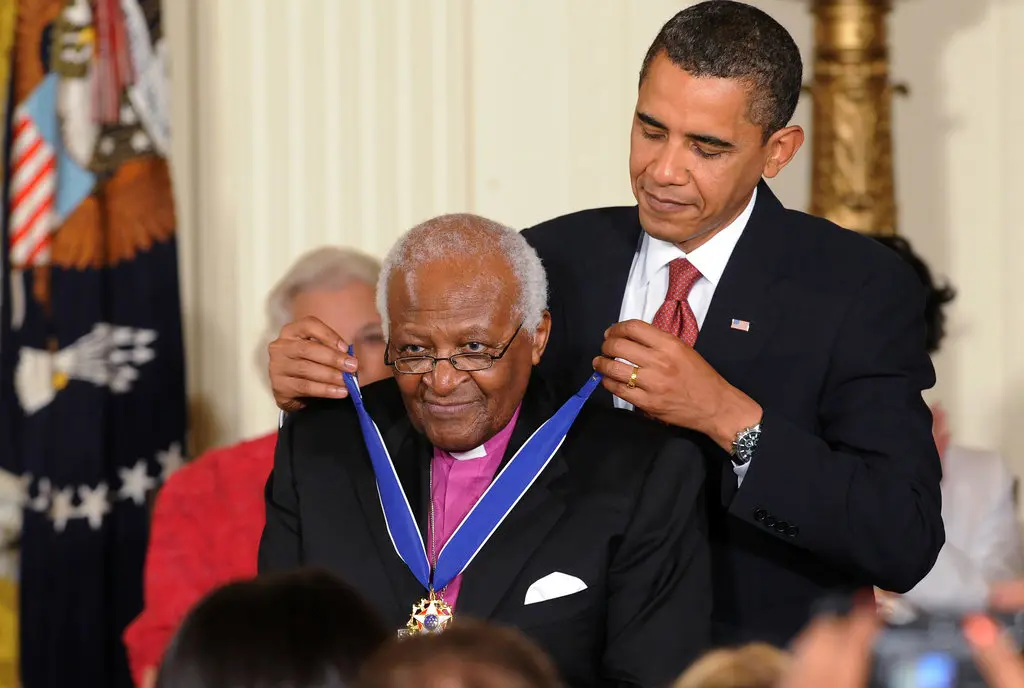
President Barack Obama presented the Presidential Medal of Freedom to Archbishop Tutu at the White House in 2009.Credit…Jewel Samad/Agence France-Presse — Getty Images.
Inside the stadium, Ms. Obama got down on the floor to perform a few push-ups, and Archbishop Tutu, seeming keen to join in, dropped to the floor and did the same. Rising to their feet, a bit winded, they congratulated each other with a fist bump.
Archbishop Tutu continued to make occasional forays into the limelight, even as he grew more infirm.
In 2021, as he approached his 90th birthday, he pitched into a fraught debate as disinformation about coronavirus vaccines swirled.
“There is nothing to fear,” he said. “Don’t let Covid-19 continue to ravage our country, or our world. Vaccinate.”
Alan Cowell and Lynsey Chutel contributed reporting.
© New York Times






